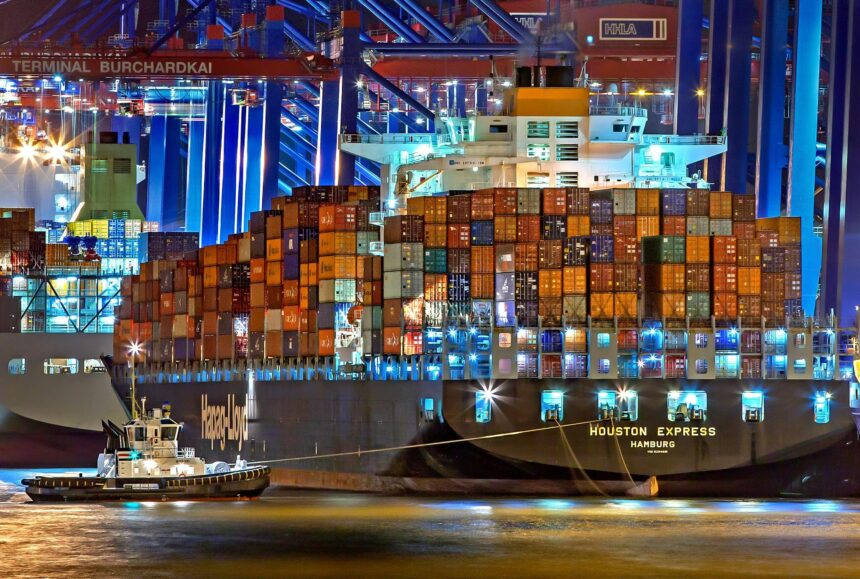The effects of President Donald Trump’s escalating trade war with China are beginning to ripple through the broader US economy, according to a report by the Financial Times. Container port operators and air freight managers are reporting sharp declines in shipments from China, while major retailers like Walmart and Target have warned of imminent product shortages and rising prices.
Following the imposition of 145% tariffs on Chinese imports, US logistics firms have seen a steep fall in container bookings. The Port of Los Angeles — a key entry point for Chinese goods — expects a 33% decline in scheduled arrivals for the week beginning May 4 compared to the same period last year. Air freight companies are also reporting significant drops in volume.
The disruption comes at a critical time for American retailers, as March and April typically mark the start of preparations for the back-to-school and holiday shopping seasons. Suppliers usually ship goods now to ensure shelves are stocked later in the year. However, ongoing uncertainty is leading many firms to delay or cancel orders altogether.
Meanwhile, the cost of entering the US market has reached its highest point since the 1930s. A survey by the International Chamber of Commerce across more than 60 countries revealed deepening pessimism about the long-term impact of the trade war, with many expecting permanent damage to global trade. Data from Vizion, a container tracking service cited by the Financial Times, shows bookings for standard 20-foot containers from China to the US fell by 45% year-on-year by mid-April.
Despite some tariff exemptions introduced by both Washington and Beijing, prospects for a swift resolution appear bleak. Although Trump has suggested the 145% tariff could be lowered, China announced on Friday that no negotiations are currently underway.
The first shipments affected by the new tariffs are now arriving in the US, prompting adjustments across supply chains. Freight companies report that many businesses are holding inventory at ports or storing goods in bonded warehouses to delay tariff payments. Some are rerouting shipments through Canada.
Chinese clients have reportedly cancelled around 30% of existing bookings, with cargo volumes continuing to fall. Bloomberg analysts estimate container traffic has dropped as much as 60% since early April.
Although consumers have yet to feel the full impact, industry leaders warn that shortages and price hikes are imminent. Retail giants Walmart and Target have already cautioned the White House about the risks of empty shelves, drawing comparisons to the supply chain chaos seen during the Covid-19 pandemic. The fallout could also trigger widespread job losses across trucking, logistics, and retail sectors.
Recession fears are mounting. According to Bloomberg, economists now view the risk of a US recession as a near coin toss, with imports projected to contract at a 7% annual rate in the second quarter — the sharpest drop since the early days of the pandemic. Inflation forecasts have also been revised upward, with the price of some Chinese imports expected to double.






